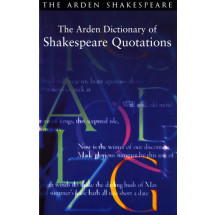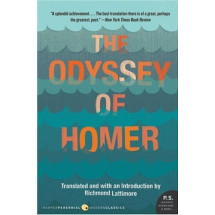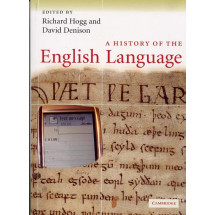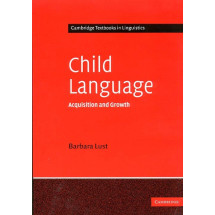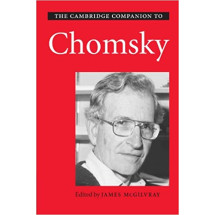Preface
Alternate Contents by Genre
Alternate Contents Additional Themes
CHAPTER 1. Why Read Literature?
Exercise
Why Do You Read Literature?
Why Do We Read Literature?
Bridging the Gap
Responding to What You Read
Exercise
ROBERT FROST, The Road Not Taken
Sample Student Response to 밫he Road Not Taken
Commentary
Exercise
Considering Evidence to Support Your Response
Close Active Reading
Sample Oral Response to The Road Not Taken
Commentary
Exercise
Keeping a Reading Journal
Guidelines: Keeping a Reading Journal
CHAPTER 2. Joining the Conversation: Ways of Talking about Literature
PATRICIA GRACE, Butterflies (short story)
Responding to Sutterflies
LANGSTON HUGHES, Theme for English B (poem)
Responding to Theme for English B
WENDY WASSERSTEIN, The Man in a Case (play)
Responding to The Man in a Case
E. B. WHITE, Education (essay)
Responding to ducation
The Vocabulary of Literature
Actions and Events
Plot
Structure
Conflict
Irony of Situation
Box: Terms Related to Actions and Events
Exercises: Actions and Events
People
Characters: Listening and Observing
Listening
Observing
Characters: Growing and Changing
Characters: Point of View
Author and Speaker
Narrator
People in Nonfiction
Box: Terms Related to People
Exercises: People
Places and Times
Time and Place: The Cultures of the Work, the Writer, and the Reader
Place
Time
Box: Terms Related to Places and Times
Exercises: Places and Times
Words and Images, Sounds and Patterns
Style
Tone
Diction
Syntax
Rhythm and Rhyme
Figurative Language
Verbal Irony
Allusions
Box: Trems Related to Words and Images, Sounds and Patterns
Exercises: Words and Images, Sounds and Patterns
Ideas
Exercises: Ideas
CHAPTER 3. Continuing the Conversation: Considering Genre and Listening to Other Voices
Expectations: Short Fiction, Poetry, Drama, Nonfiction
Distinctions: Short Fiction and Drama
Distinctions: Poetry
MARGARET ATWOOD, you fit into me
Distinctions: Nonfiction
An Introduction to Short Fiction
Early Forms of Fiction
Allegory
Myth
Legend
Fairy Tale
Fable
Parable
Modern Short Fiction
The Realistic Short Story
The Nonrealistic Short Story
A Word about Fiction and Truth
Guidelines: Short Fiction
An Introduction to Poetry
Suggestions for Reading Poetry
Types of Poetry
Guidelines: Poetry
An Introduction to Drama
Suggestions for Reading Drama
Traditional Forms of Drama
Modern Forms of Drama
Types of Drama
Guidelines: Drama
An Introduction to Nonfiction
Suggestions for Reading Speeches
Suggestions for Reading Letters
Suggestions for Reading Documents
Suggestions for Reading Journals and Diaries
Suggestions for Reading Essays
Guidelines: Nonfiction
Considering Other Voices
Authors Commentaries and Interviews
Reviews
Scholarly Criticism
CHAPTER 4. Writing About Literature
DYLAN THOMAS, Do Not Go Gentle into That Good Night
Responding to do Not Go Gentle into That Good Night
JOAN ALESHIRE, Slipping
Responding to Tlipping
Preparing to Write About Literature
Understanding the Assignment
Thinking about the Assignment
Assignment Topics
Writing to Respond
Topic 1
Discovering Ideas: Journal Entries
Considering Audience
Narrowing the Topic
Devising a Preliminary Thesis Statement
Planning and Organizing
Drafting
Changes, KAREN ANGSTROM (draft student paper)
Revising Focus: Titles, Openings, Conclusions
Karen Angstrom's Revision List
Editing Focus: To Be, Expletives, Passive Voice
Karen Angstrom's Editing List
Proofreading Focus: Fragments and Comma Splices
Exercise
Final Copy: Writing to Respond
Changes: For Better or Worse? KAREN ANGSTROM (Student Paper)
Exercise
Guidelines: Writing a Response
Writing to Compare
Topic 2
Discovering Ideas: Discussion and Collaboration
Box: Strategies for Collaborative Work
Considering Audience, Narrowing the Topic, and Devising a Preliminary Thesis
Drafting
Responses: Raging Versus Slipping, WALTER JOHNSON (draft student paper)
Revising Focus: Transitions, Development of Ideas
Workshop Excerpt
Editing Focus: Nominalizations, Parallel Structure
Workshop Excerpt
Proofreading Focus: Subject-Verb Agreement, Tense Agreement
Workshop Excerpt
Exercise
Final Copy: Writing to Compare
Responses: Raging Versus Slipping, WALTER JOHNSON (student paper)
Exercise
Guidelines: Writing a Comparison
Writing to Analyze
Topic 3
Discovering Ideas: Listing and Grouping
Excerpt from Catherine Hupel's Work
Considering Audience, Narrowing the Topic, and Devising a Preliminary Thesis
Excerpt from Catherine Hupel's Work
Planning, Organizing, and Drafting
love and Loss in lipping, CATHERINE HUPEL (draft student paper)
Revising Focus: Using and Explaining Examples
Excerpt from Catherine Hupel's Work
Exercise
Editing Focus: Word Choice
Excerpt from Catherine Hupel's Work
Exercise
Proofreading Focus: Misplaced Modifiers
Excerpt from Catherine Hupel's Work
Exercise
Final Copy: Writing to Analyze
Love and Loss in lipping, CATHERINE HUPEL (student paper)
Guidelines: Writing an Analysis
Writing to Explicate
Topic 4
Discovering Ideas: Paraphrasing
Matt Cejak's Paraphrases (student work)
Considering Audience, Narrowing the Topic, and Devising a Preliminary Thesis
Excerpt from Matt Cejak뭩 Work
Planning and Organizing
Drafting
Excerpt from Matt Cejak's Work
Revising Focus: Summarizing Versus Analzying
Guidelines: Preparing for a Writing Conference
Excerpt from Matt Cejak's Writing Conference
Matt Cejak's Second Draft
Explication: Do Not Go Gentle, MATTHEW CEJAK (draft student paper)
Editing Focus: Conciseness
Excerpt from Matt Cejak's Work
Exercise
Proofreading Focus: Apostrophes, Quotation Marks to Indicate Words Used in a Special Way
Excerpt from Matt Cejak's Work
Exercise
Final Copy: Writing to Explicate
The Power of Sound and Sight in Do Not Go Gentle, MATTHEW CEJAK
Exercise
Guidelines: Writing an Explication
Writing to Evaluate
Topic 5
Discovering Ideas: Interviewing
Joann Epstein뭩 Journal Entry
Considering Audience, Narrowing the Topic, and Devising a Preliminary Thesis
Excerpt from Joann Epstein's Work
Planning and Organizing
Excerpt from Joann Epstein's Work
Drafting
Revising Focus: Logic
Excerpt from Joann Epstein's Work
Editing Focus: Integrating and Punctuating Quotations
Excerpt from Joann Epstein's Work
Proofreading Focus: Pronoun Reference, Pronoun Agreement, Treatment of Titles
Excerpt from Joann Epstein's Work
Final Copy: Writing to Evaluate
Love and Strength, JOANN EPSTEIN (student paper)
Exercise
Guidelines: Writing an Evaluation of Beliefs and Values
5. Argument, Critical Thinking, and Research
Argument and Critical Thinking
Definition of Argument
Purpose for Argument
"The Storm" Kate Chopin
Argument and Controversy
Determining a Thesis for Argument
Topics for Argument
Considering Audience
Exploring Ways to Refine the Thesis and Support the Argument
Close Reading
Discussion and Interviews
Library and On-line Research
Argument and Research
The Research Question
The Persuasive Research Paper
Exploring the Research Question
Resources for Research: Reference Works
Monographs and Other Books
Printed Periodicals
Online Resources
Guidelines: Locating Online Resources
Guidelines: Evaluating Internet Resources
Planning an Argument and Formulating the Thesis
Drafting an Argument
Guidelines: Rational Appeals
Revising an Argument
Using and Documenting Sources
Taking Notes
Organizing Your Notes
Summarizing and Paraphrasing
Copying Quotations
Sample Notecards
Determining What Needs to be Documentated
What Does Not Need to Be Documented
Avoiding Plagiarism
Exercise
Using and Documenting Quotations from Literary Works: MLA Style
Quoting from Poems
Quoting from Plays
Quoting from Fiction
Incorporating Material from Sources into Your Paper
Compiling a List of Works Cited
Print Resources
Oral Communication
Media and Performance Sources
Online Sources
Guidelines: Preparing the List of Works Cited
Sample of a Completed Researched Argument
Closer Look at Bobint, JOSH LACHANCE (student paper)
Note: Selections that are new to the f ifth edition are indicated with an asterisk
CHAPTER 6. Innocence and Experience
On Reading Literature Th...
Judith Stanford is Professor of English at Rivier College in Nashua, New Hampshire, where, for the past fifteen years, she has taught courses in literature and writing. She has also taught at Cape Cod Community College, Merrimack College (North Andover, Massachusetts) and the University of California at Santa Barbara. She received the B.A. degree from Colby College (Waterville, Maine) and both the M.A. and Ph.D. from the University of California at Santa Barbara. Professor Stanford's books include Connections, now in its third edition, Developing Connections, now in its second edition, and Guidelines for Writers, all published by McGraw-Hill.



